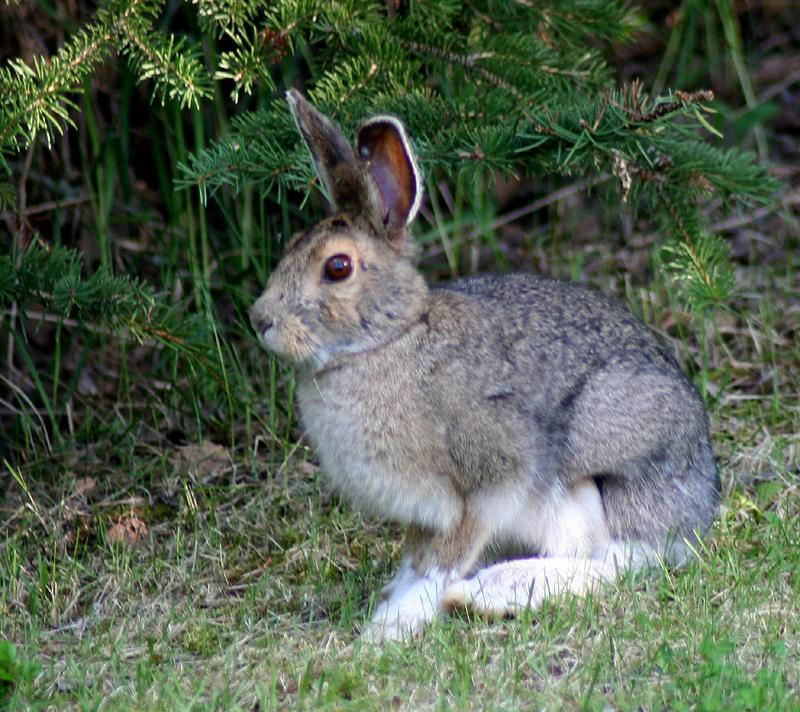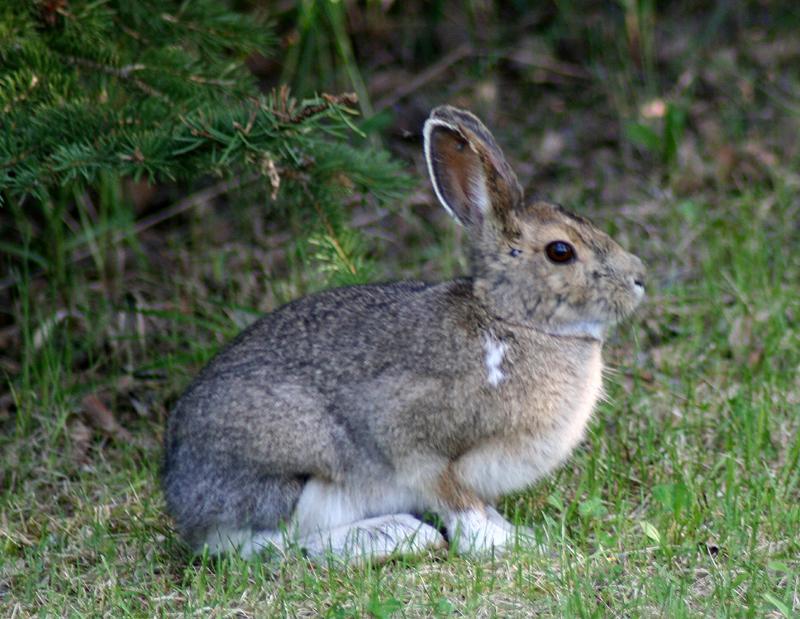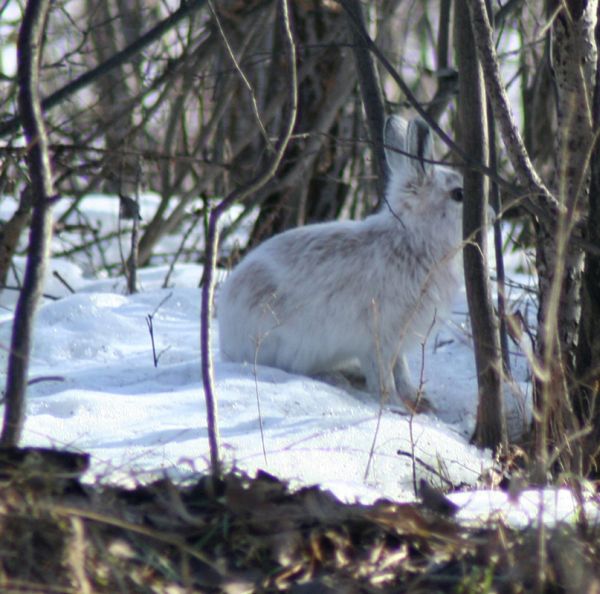Wildlife North America . com North American Animals - mamals, birds, reptiles, insects |
Snowshoe Hare (Lepus americanus)
Snowshoe Hare, Alberta, Canada. Photograph by Marilylle Soveran. Some rights reserved. (view image details) 
Snowshoe Hare, Alberta, Canada. Photograph by Marilylle Soveran. Some rights reserved. (view image details) 
Snowshoe Hare, Alberta, Canada. Photograph by Marilylle Soveran. Some rights reserved. (view image details)
SNOWSHOE HARE FACTS
DescriptionSnowshoe hares have dense furred feet including the soles, to help them cope with the cold snowy winters - hence their name. In summer they have grizzled rust brown or grayish brown fur with dark line down the back, and white underside. The face and legs are cinnamon brown, and the ears are brown with black tips and white edges. The winter coat is white with black ear tips. Other Names Snowshoe Rabbit, Varying Hare Size Length: 41 - 52cm including tail of 4 - 5cm. The ears are 6 - 7cm long. Weight: about 1.5kg.Males are slightly smaller than females. Environment tundra, fields, swamps, roadsides, conifer forest. Food Their diet includes grasses, herbs, dandelions, clovers, daisies and horsetails. During the winter, when soft green plants are harder to find, they eat buds, twigs, bark, and evergreens. Breeding Females give birth to litters of up to 8 young (average 2 - 4) after a gestation period of 36 days. Up to 4 litters may be born in a year. The young are weaned after 14 - 28 days. Range Canada, including arctic areas, and northern parts of the United States. Found in the Rocky Mountains, Sierras and Appalachian Mountains. Classification
Relatives in same Genus Arctic Hare (L. arcticus) Black-tailed Jackrabbit (L. californicus) Alaskan Hare (L. othus) White-tailed Jackrabbit (L. townsendii) Home | Mammals | Reptiles | Birds | Insects | Privacy Policy | Disclaimer | Contact Us |